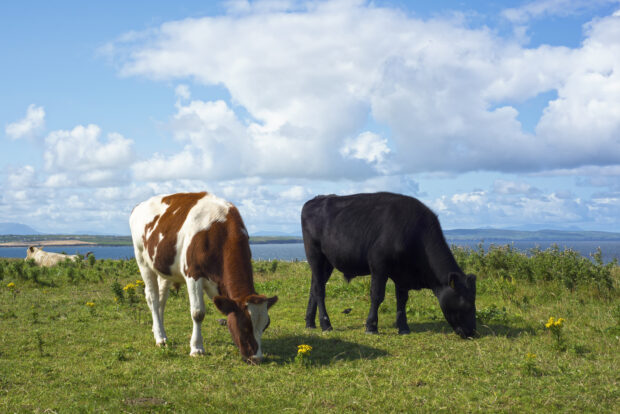
Today there is widespread media coverage on Defra’s publication of the next stages of its strategy to tackle the damaging animal disease bovine TB.
This was covered widely included by the Guardian, the Telegraph, Sky News, Times, Daily Mirror, the i, Daily Mail and BBC News. The announcement was also discussed on BBC Radio 4’s Today and Farming Today programme’s this morning.
This came as the government responded to an independent review of its 25 year bTB strategy for England, led by Professor Sir Charles Godfray.
Much of the coverage focussed on badger culling with the response setting out an intention to begin to phase out intensive badger culling. There is also analysis of other tools to tackle the disease such as the development of a cattle vaccination, improved testing to intercept the disease earlier and increased badger vaccination.
Environment Secretary George Eustice said:
Bovine TB is a slow-moving and insidious disease leading to the slaughter of over 30,000 cattle every year and considerable trauma for farmers as they suffer the loss of highly prized animals and valued herds.
“The badger cull has led to a significant reduction in the disease as demonstrated by recent academic research and past studies. But no one wants to continue the cull of this protected species indefinitely so, once the weight of disease in wildlife has been addressed, we will accelerate other elements of our strategy including improved diagnostics and cattle vaccination to sustain the downward trajectory of the disease.
UK Chief Veterinary Officer Christine Middlemiss said:
This ground-breaking research carried out by APHA has enabled us to embark on the first step of the field trials required to license the cattle vaccine and test it.
“Whilst there is no single way to combat this damaging and complex disease, cattle vaccination will be a new tool for our multi-pronged approach to tackle it and importantly prevent it, providing vital support to our farming communities.
“Bovine TB presents a global challenge and the UK can harness its world-leading science to develop solutions such as vaccination that could also be valuable to other countries.
Further information is available here.
4 comments
Comment by Dave Stanley posted on
TB in human beings is a disease associated with deprivation, starvation, slum areas, refugee columns etc. Question – is it any different with livestock? I have asked the question in the past as to what is the TB incidence rate is between intensive dairy, intensive beef, organic, low input Pasture-Fed systems.
Defra are obsessed with eradication – i.e. Agri business option - Rather than tackling the root cause. That I might suggest is the decline in the soil ecosystem – largely precipitated by nitrate fertilisers and pesticides, Glyphosate et cetera.
A strategy to rebuild the soil ecosystem, along with a diverse “meadow“ sward would largely resolve this issue both for the badgers and our livestock. And save Defra £100 million per annum.
Comment by Michael Hughes posted on
Anyone who cares about wildlife, and badgers in particular, will be heartened by this announcement, if, indeed fewer healthy badgers are to die needlessly. Cattle to cattle transmission, brought about in large measure by the abject failure of the skin test, is the major continuing cause of bovine TB spread. The absence of enforced biosecurity measures and the obvious need for risk trading are two more key factors which have not been addressed. Let's see if this apparent change of direction really is followed through or, if once again, excuse will follow excuse and badgers will continue to be unjustly slaughtered.
Comment by martin hancox posted on
Since badgers have never actually been "the cause of the spread of CATTLE TB", neither culls or vaccination will have the slightest effect, so must be licenced "unlawfully" under the 1992 Badgers Act.
Godfray and the ISG only found 1515 TB badgers in 1900 sq.km. in the RBCT.A dead-end spillover, so culls utterly meaningless.
Comment by Michael Desmond Walters posted on
Badger culling was and still is a cruel abuse of our wildlife.
I voted tory in December mainly to keep Corbyn out of no 10, but did so with a heavy heart.
I genuinely believe the party I voted for should be ashamed over this barbaric treatment of our furry friends.
Boris's manifesto says he intends to improve animal welfare. Was I correct to place my trust in him?
One chance and one chance only Boris.